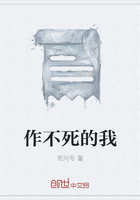The street was very quiet. All windows and doors were closed and barred; not a soul was there to trouble me with look or speech. The yelling from the forest had ceased; only the keen wind blew, and brought from the Esperance upon the river a sound of singing. The sea was the home of the men upon her decks, and their hearts dwelt not in this port; they could sing while the smoke went up from our homes and the dead lay across the thresholds.
I went on through the sunshine and the stillness to the minister's house. The trees in the garden were bare, the flowers dead. The door was not barred. I entered the house and went into the great room and flung the heavy shutters wide, then stood and looked about me. Naught was changed; it was as we had left it that wild November night. Even the mirror which, one other night, had shown me Diccon still hung upon the wall. Master Bucke had been seldom at home, perhaps, or was feeble and careless of altering matters. All was as though we had been but an hour gone, save that no fire burned upon the hearth.
I went to the table, and the books upon it were Jeremy Sparrow's: the minister's house, then, had been his home once more. Beside the books lay a packet, tied with silk, sealed, and addressed to me.
Perhaps the Governor had given it, the day before, into Master Bucke's care, - I do not know; at any rate, there it lay. I looked at the "By the Esperance" upon the cover, and wondered dully who at home would care to write to me; then broke the seal and untied the silk. Within the cover there was a letter with the superscription, "To a Gentleman who has served me well."
I read the letter through to the signature, which was that of his Grace of Buckingham, and then I laughed, who had never thought to laugh again, and threw the paper down. It mattered naught to me now that George Villiers should be grateful, or that James Stewart could deny a favorite nothing. "The King graciously sanctions the marriage of his sometime ward, the Lady Jocelyn Leigh, with Captain Ralph Percy; invites them home" -
She was gone home, and I her husband, I who loved her, was left behind. How many years of pilgrimage . . . how long, how long, O
Lord?
The minister's great armchair was drawn before the cold and blackened hearth. How often she had sat there within its dark clasp, the firelight on her dress, her hands, her face! She had been fair to look upon; the pride, the daring, the willfulness, were but the thorns about the rose; behind those defenses was the flower, pure and lovely, with a heart of gold. I flung myself down beside the chair, and, putting my arms across it, hid my face upon them, and could weep at last.
That passion spent itself, and I lay with my face against the wood and well-nigh slept. The battle was done; the field was lost; the storm and stress of life had sunk into this dull calm, as still as peace, as hopeless as the charred log and white ash upon the hearth, cold, never to be quickened again.
Time passed, and at length I raised my head, roused suddenly to the consciousness that for a while there had been no stillness. The air was full of sound, shouts, savage cries, the beating of a drum, the noise of musketry. I sprang to my feet, and went to the door to meet Rolfe crossing the threshold.
He put his arm within mine and drew me out into the sunshine upon the doorstep. "I thought I should find you here," he said; "but it is only a room with its memories, Ralph. Out here is more breadth, more height. There is country yet, Ralph, and after a while, friends. The Indians are beginning to attack in force.
Humphry Boyse is killed, and Morris Chaloner. There is smoke over the plantations up and down the river, as far as we can see, and awhile ago the body of a child drifted down to us."
"I am unarmed," I said. "I will but run to the fort for sword and musket" -
"No need," he answered. "There are the dead whom you may rob."
The noise increasing as he spoke, we made no further tarrying, but, leaving behind us house and garden, hurried to the palisade.















